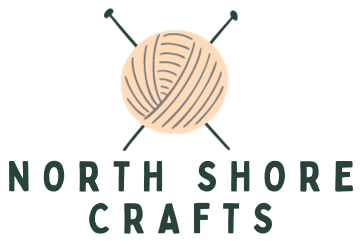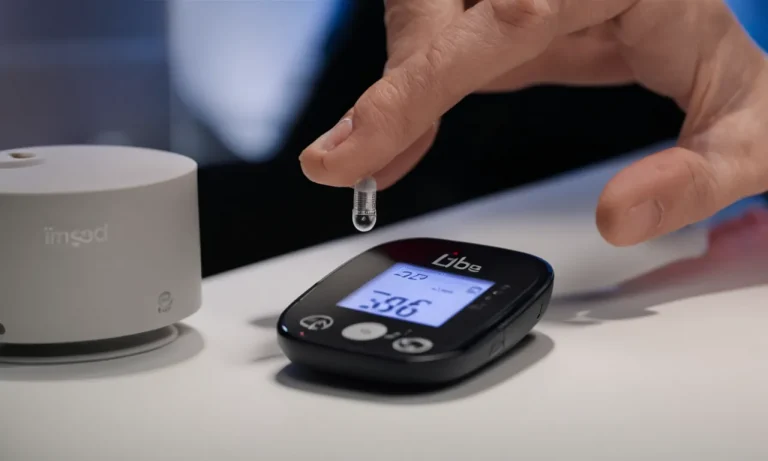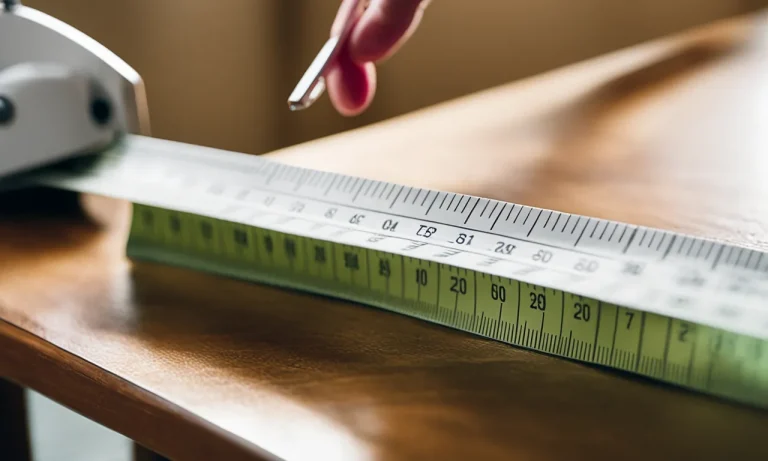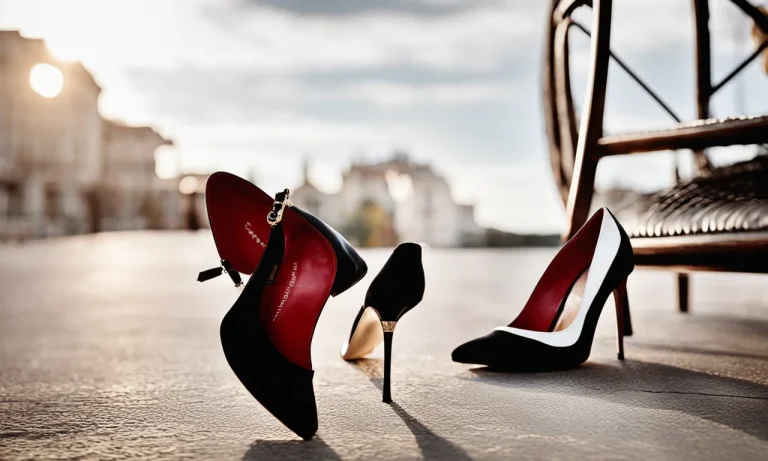Who Made Kenmore Sewing Machines? A Comprehensive History
For over 100 years, Kenmore sewing machines have been a staple in American households. With their reliability, versatility, and affordability, Kenmores helped sewists everywhere create clothes, crafts, quilts, and more. If you’re wondering who made your trusty Kenmore, you’ve come to the right place.
Here’s a quick answer: While Sears sold Kenmore sewing machines under their popular appliance brand, the machines themselves were actually manufactured by numerous companies over the years, including White, Free, Toyota, Janome, and Juki.
The Origins of Kenmore Sewing Machines
Kenmore Brand Launched by Sears in 1913
The history of Kenmore sewing machines dates back to 1913 when the renowned American retailer, Sears, introduced the Kenmore brand to the market. Sears recognized the growing demand for sewing machines among households and decided to create their own brand to cater to this need.
The name “Kenmore” was chosen as a tribute to the company’s top-performing washing machines, which were named after the prestigious Chicago suburb of Kenmore.
Since its inception, Kenmore sewing machines have been known for their quality, reliability, and innovative features. Sears aimed to provide customers with a sewing machine that was not only affordable but also durable enough to withstand regular use.
The Kenmore brand quickly gained popularity and became a trusted name in the sewing industry.
Over the years, Kenmore sewing machines have evolved to meet the changing needs of consumers. From mechanical models to computerized ones, Kenmore has continuously adapted to advancements in technology to offer users a seamless sewing experience.
Sears Partnered With White Sewing Machine Company
To ensure the success of the Kenmore brand, Sears formed a strategic partnership with the White Sewing Machine Company. White was a well-established sewing machine manufacturer known for their expertise in the industry.
This collaboration allowed Sears to benefit from White’s technical knowledge and manufacturing capabilities.
The partnership with White enabled Sears to produce a wide range of Kenmore sewing machines that catered to different skill levels and sewing requirements. Whether customers were beginners or experienced seamstresses, there was a Kenmore sewing machine to suit their needs.
By partnering with White, Sears was able to enhance the quality and performance of Kenmore sewing machines. The combination of Sears’ commitment to affordability and White’s expertise in sewing machine manufacturing resulted in a winning formula that made Kenmore a household name.
Today, Kenmore sewing machines continue to be sought after by sewing enthusiasts around the world. With a rich history spanning over a century, the Kenmore brand remains a symbol of innovation, reliability, and craftsmanship in the sewing industry.
Kenmore Sewing Machines Transition to New Manufacturers
Over the years, the production of Kenmore sewing machines has undergone several transitions, with different manufacturers taking the helm at various points in time. Each transition brought its own unique contributions to the brand, ensuring that Kenmore remained a trusted name in the world of sewing machines.
Let’s take a closer look at three significant transitions in the history of Kenmore sewing machines.
Free Westinghouse Made Kenmores in the 1950s-60s
In the 1950s and 1960s, Kenmore sewing machines were manufactured by Free Westinghouse. This partnership played a crucial role in establishing Kenmore as a reputable brand known for its quality and reliability.
Free Westinghouse brought their expertise in appliance manufacturing to the table, resulting in sewing machines that were built to last. These machines were highly sought after by sewing enthusiasts, thanks to their durability and innovative features.
During this period, Kenmore sewing machines gained popularity among homemakers and professional seamstresses alike. The machines were praised for their versatility, allowing users to stitch a wide range of fabrics with ease.
Whether it was sewing garments, creating intricate embroidery designs, or mending household items, Kenmore machines were up to the task.
Toyota Took Over Production in the 1970s
In the 1970s, Toyota became the new manufacturer of Kenmore sewing machines. This transition marked a significant turning point in the brand’s history, as Toyota brought their renowned precision engineering and technological advancements to the table.
With Toyota’s expertise, Kenmore sewing machines received further enhancements in terms of performance and functionality.
During the Toyota era, Kenmore sewing machines continued to cater to the needs of sewing enthusiasts. The machines were lauded for their smooth and quiet operation, making sewing a more enjoyable experience.
Additionally, Toyota’s commitment to innovation resulted in the introduction of new features, such as automatic thread tension and programmable stitch patterns. These advancements further solidified Kenmore’s reputation as a brand that embraced technological progress.
Janome and Other Japanese Companies Dominated the 80s and 90s
In the 1980s and 1990s, Kenmore sewing machines were predominantly manufactured by Japanese companies, with Janome playing a significant role. Janome brought their expertise in precision sewing machine manufacturing to the Kenmore brand, elevating the quality and performance of the machines even further.
During this period, Kenmore sewing machines continued to evolve, incorporating advanced features and functionalities. The machines became more user-friendly, with intuitive controls and easy-to-understand stitch selection options.
Janome’s dedication to producing high-quality sewing machines ensured that Kenmore remained a go-to choice for sewing enthusiasts around the world.
Today, Kenmore sewing machines continue to be manufactured by various companies, ensuring that the brand’s legacy of quality and innovation lives on. Whether it’s the Free Westinghouse era, the Toyota era, or the Janome era, each manufacturer has played a crucial role in shaping the Kenmore brand and providing sewers with reliable and feature-rich machines to unleash their creativity.
Kenmore Sewing Machines Today
When it comes to Kenmore sewing machines, most of them are currently manufactured by the reputable Juki Corporation. Juki, a Japanese company known for its high-quality sewing machines, has been producing Kenmore models since the early 2000s.
With their expertise and advanced technology, Juki ensures that Kenmore sewing machines meet the highest standards of performance and durability.
Mostly Made by Juki Corporation
Juki Corporation has a long-standing reputation for producing top-notch sewing machines, and their partnership with Kenmore has only strengthened the brand’s credibility. With their innovative designs and cutting-edge features, the Kenmore sewing machines made by Juki are highly regarded by both sewing enthusiasts and professionals alike.
Whether you’re a beginner or an experienced sewist, you can trust that a Kenmore sewing machine made by Juki will deliver exceptional results.
One of the advantages of Juki’s involvement in the manufacturing process is that they bring their extensive knowledge and experience in the sewing machine industry. This allows Kenmore sewing machines to benefit from Juki’s technological advancements, ensuring that they are equipped with the latest features and functionalities.
Some Specialty Machines Still Produced by Janome
While the majority of Kenmore sewing machines are made by Juki, there are still some specialty models that are produced by Janome. Janome, another well-respected sewing machine manufacturer, has been collaborating with Kenmore to create unique machines for specific purposes.
These specialty models cater to the needs of sewists who require specific features or functions for their sewing projects.
Janome’s involvement in producing specialty Kenmore sewing machines brings a level of expertise and specialization to the brand. With Janome’s knowledge of niche sewing techniques and their commitment to quality, these specialty Kenmore machines offer a tailored experience for sewists with specific requirements.
It’s important to note that while Juki and Janome are the primary manufacturers of Kenmore sewing machines, other reputable companies may also be involved in the production of certain models. Kenmore has partnered with these manufacturers to ensure that their sewing machines continue to meet the high standards that the brand is known for.
If you want to learn more about the current lineup of Kenmore sewing machines, you can visit the official Kenmore website https://www.kenmore.com. There, you’ll find detailed information about each model, including their features, specifications, and availability.
The Legacy and Value of Vintage Kenmore Sewing Machines
Kenmore sewing machines have a rich history that spans several decades, and their vintage models continue to hold immense value in the sewing community. These machines were initially manufactured by Sears, Roebuck and Co., a renowned American retailer.
Although Kenmore sewing machines are no longer produced, their legacy lives on through the passionate sewing enthusiasts who still use and cherish these classic models.
Many Classic Models Still Sew Strong
One of the remarkable aspects of vintage Kenmore sewing machines is their durability. Many of these machines were built to last, with sturdy construction and high-quality materials. Even after years of use, it is not uncommon to find these machines still functioning perfectly, producing beautiful stitches with ease.
This speaks to the exceptional craftsmanship and attention to detail that went into the manufacturing of Kenmore sewing machines.
Moreover, vintage Kenmore sewing machines offer a wide range of features that make them versatile and suitable for various sewing projects. From basic stitches to more intricate patterns, these machines were designed to meet the needs of both beginners and experienced sewers.
Whether you’re creating garments, home decor items, or intricate quilts, a vintage Kenmore sewing machine can handle the task with precision and reliability.
Additionally, owning a vintage Kenmore sewing machine can be a unique and nostalgic experience. These machines often carry sentimental value, passed down from generation to generation. They evoke memories of past sewing projects, family gatherings, and the joy of creating something with your own hands.
Where to Find Parts and Service for Older Kenmores
While vintage Kenmore sewing machines are renowned for their durability, it’s not uncommon for them to require occasional maintenance or replacement parts. Fortunately, there are still resources available for those seeking to keep their beloved Kenmores in excellent working condition.
One option is to visit local sewing machine repair shops. These professionals often have experience working with vintage machines and can provide the necessary expertise to keep your Kenmore running smoothly.
They can also source and install any required replacement parts, ensuring that your machine remains in top shape.
Another option is to explore online communities and forums dedicated to vintage sewing machines. These communities are filled with passionate individuals who are knowledgeable about Kenmore machines and can offer valuable advice on repairs and parts sourcing.
They may even have spare parts available for sale or trade.
Finally, websites like SewingPartsOnline.com and eBay can be excellent resources for finding specific parts for vintage Kenmore sewing machines. These platforms offer a wide selection of replacement parts, allowing you to restore your machine to its original functionality.
Conclusion
While the Kenmore name has changed hands many times, the brand’s commitment to quality, reliability, and value has remained steady. For over a century, sewing enthusiasts have treasured their Kenmores. With proper care and maintenance, these classic machines can sew on for generations to come.







